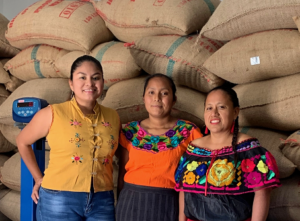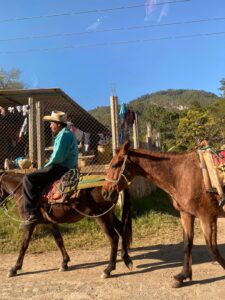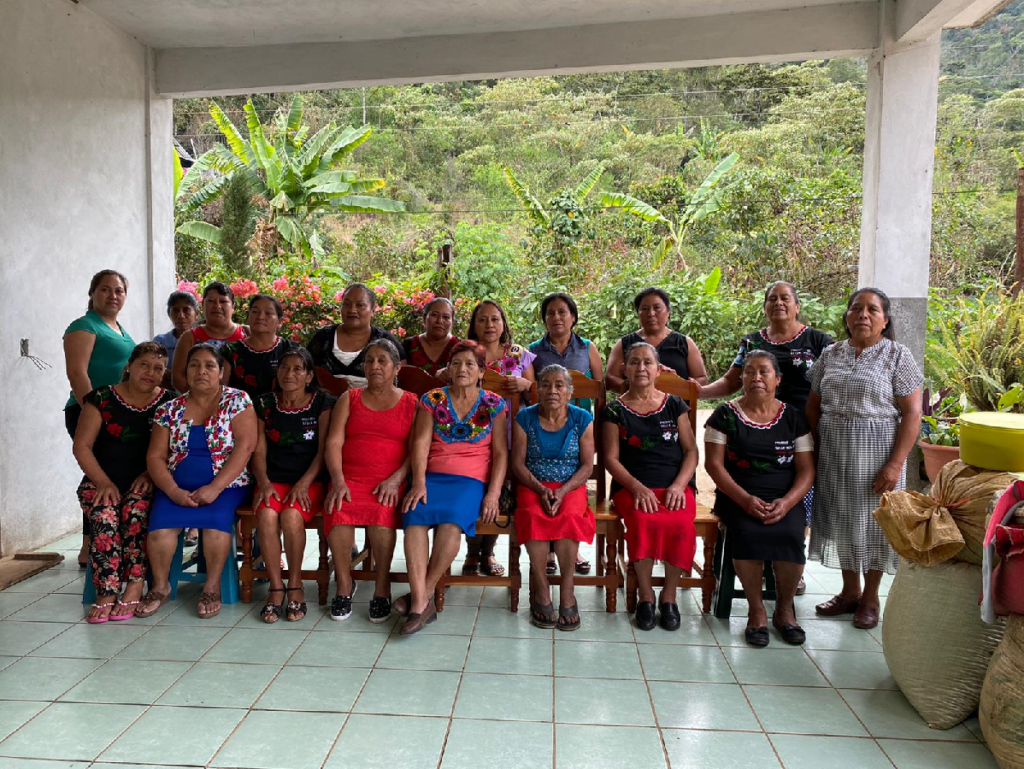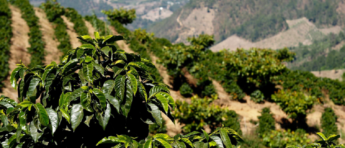Mexico Origin Trip: Mayan Harvest
- October 08, 2023
Here at Servant Coffee, we are dedicated to creating lasting, mutually beneficial, and transparent relationships with everyone and every organization we work with. Nowhere is this more directly practiced than in fostering close relationships with the farmers, producers, and cooperatives that grow and process the coffees we buy. While it’s not always possible to engage in direct relationships with coffee growers and producers, we are very lucky to have a direct and personal relationship with our producers in Mexico that have brought us some delicious coffees over the years.
Experiencing Mayan Harvest Production Firsthand

This year was our 3rd year working with Mayan Harvest, a coffee production and import/export group started and led by Rosalba Cifuentes Tovia in the Bella Vista region of Chiapas in southern Mexico. Rosalba, who is now based out of Oakland, California, was born and raised in the Bella Vista coffee community and is dedicated to helping the producers in the area continually improve the quality of the coffee they grow and improve the lives of the everyone in the community. After talking with Rosalba about the coffees from this most recent harvest, we thought it was time we paid them a visit to learn more about the region, the coffee production, and the community impact the Mayan Harvest project is having in the area.
Sharing Philosophies on Coffee Production
There are many reasons why coffee roasters like to visit their producers when the opportunity arises, and sometimes these visits are largely driven by roasters wanting to understand more about the origin, coffee growing/production, and coffee processing. Sometimes it’s the coffee producers that invite roasters to come to origin to sample (which we call ‘cupping’) the coffees from the latest harvest and contract the coffees/quantities they want to purchase until the next harvest. This visit, however, was a bit different. While we were very interested in all these topics and more, Rosalba was also interested in asking us some questions about our perspective as well. She wanted to understand our philosophies on sourcing and buying green coffee, how and why we roast the way we do, and who our customer base is. This was a great opportunity to learn more about Mayan Harvest while helping her team understand what happens to their coffees after they’re grown, processed, and exported.
We were lucky enough to travel down to Chiapas in July 2023, and one of the most striking things we noticed upon arrival was just how incredibly remote the region is. The southeastern part of Chiapas, where the municipality of Bella Vista is located, is a maze of steep mountains and deep, fertile valleys.
Even though Chiapas is responsible for nearly 60% of Mexico’s total coffee production, it’s still considered one of the poorest municipalities in the country. It has significantly underdeveloped infrastructure compared to the rest of the country, and its significant indigenous population with isolationist tendencies keep the state distinct culturally. This underdevelopment and isolation directly affect the coffee growing in the region, making it a surprisingly difficult place to grow coffee despite having nearly ideal climate and terroir.
Challenges of Producing Coffee in Chiapas
Very few coffee producing organizations, be they individual families/farmers or larger coops, have the wherewithal to process the coffee they grow on-site. This means that once the coffee is grown and picked, the coffee cherries often need to then be transported to different locations. Because of the difficult terrain and poor infrastructure, many of Mayan Harvest’s farmers must use burros and other pack animals to transport their coffee cherries to these local collection locations where they can be processed. This is a slow, dangerous, and labor-intensive process that adds time and risk to the already difficult coffee growing process.

One specific farm we visited that really typifies the average coffee grower in the area is called Zancudo, which literally translates to mosquito, and is named very appropriately. This farm is managed by a single mother and requires a 45-minute walk through some very treacherous terrain to get in or out of the valley. The amount of rain the farm receives, despite being good overall for the production of coffee and other crops, creates several problems for the team. Mosquitos are rampant and can present some serious health risks given the remoteness of the region and lack of widespread healthcare. The mosquitos, along with the challenging terrain, also make it very hard to get coffee pickers down to the farm at the right time. Too much moisture also makes it very difficult to dry the picked coffee correctly and presents serious challenges in transporting the dried coffee.
Mayan Harvest’s Impact on the Chiapas Region
Rosalba and the Mayan Harvest team help farms like Zancudo in a variety of ways. Coffee from this farm and many others produce the coffee that becomes our current offering, Mujeres. We call this coffee Mujeres because it’s a collection of coffees grown by the Women’s Group, which is comprised of 168 individual farms, nearly all of which are family-owned and operated by indigenous Maya women. Because Mayan Harvest directly exports the coffee they grow to Oakland, they don’t need to rely on an import/export operation and the associated cost of these organizations, which ultimately frees up more of the money to go directly to the farmers and producers. Being paid fair prices allows producers to re-invest more of their revenue into improving the quality of the coffee, which reduces the amount of loans the producers would otherwise need to maintain and improve their farms that would cut into bottom line profits for the farmers. Higher prices and profits also flow into the surrounding community, providing funds for improving local infrastructure, increasing access to education and healthcare, and creating other social and economic opportunities.

Rosalba and her team were also very interested in talking with us about other elements of the coffee industry. We helped them understand what it is we look for in coffees, how we approach roasting our coffees, and gave them some feedback on things we like about the coffee and things we think could be improved. They were very interested in ways to diversify their economic opportunities, as there is a lot of monocropping in the area because the geography in the region makes it hard to grow other crops and transport them in ways that make their cultivation financially viable. Monocropping also presents substantial risk to coffee growing (or whatever crop is being grown) as these operations tend to be much more susceptible to pests and other pathogens due to a lack of biodiversity and natural ecology.
Overall, we had an amazing trip to Chiapas and got to see first-hand how the coffee we roast is grown and how we can help these communities flourish. Visits like this really reinforce our philosophy of buying coffee for its overall impact as much as for flavor and quality. We’re honored to work with trailblazers like Rosalba and Mayan Harvest, and very proud to be a part of it.
